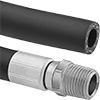Filter by
Thread Size
Length
Material
Fastener Strength Grade/Class
System of Measurement
Threading
Finish
Thread Direction
Thread Spacing
Height
Thread Fit
Specifications Met
DFARS Specialty Metals
Drive Style
Tensile Strength
Fastening and Joining
Fluid Handling
Material Handling










































